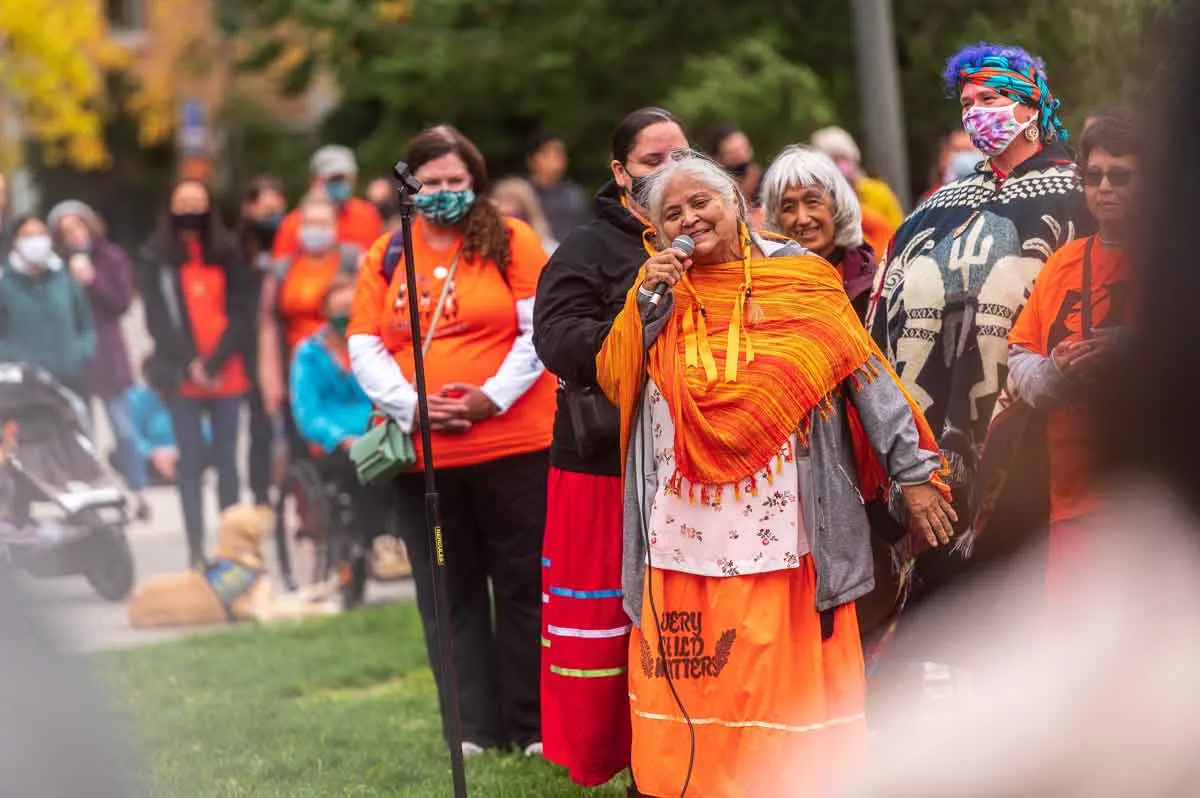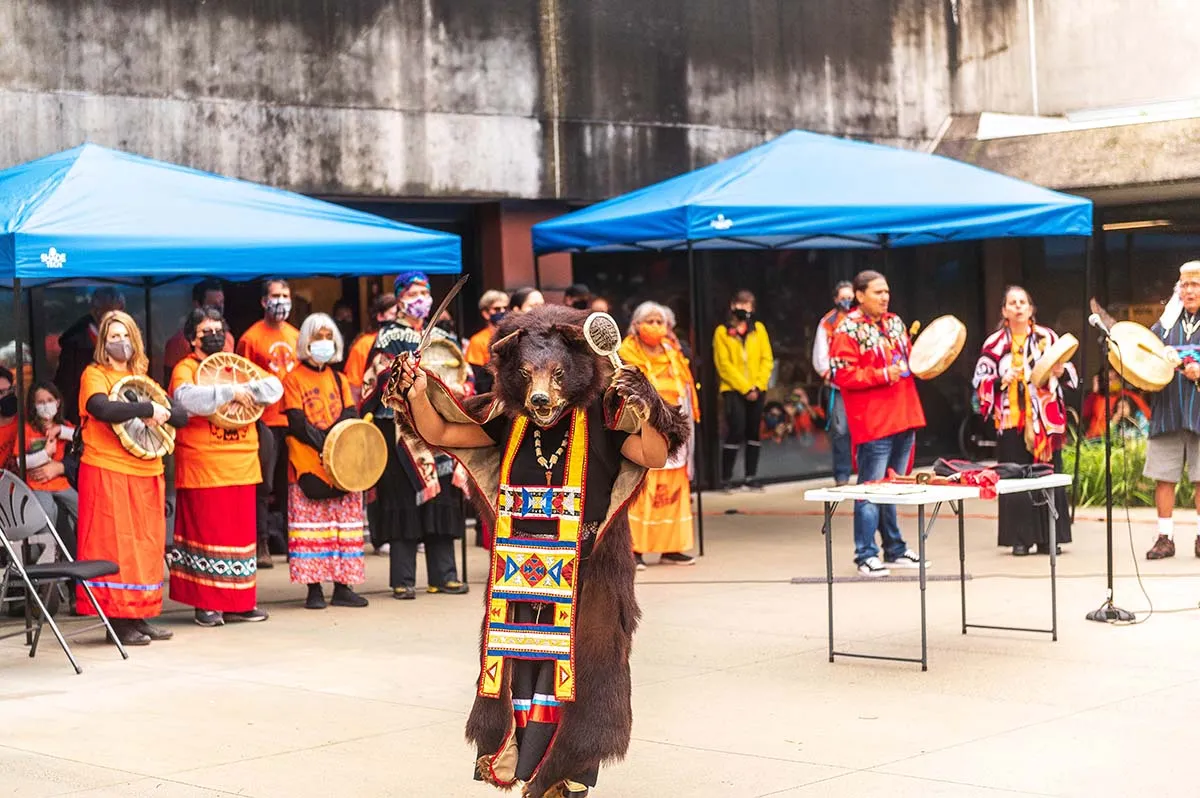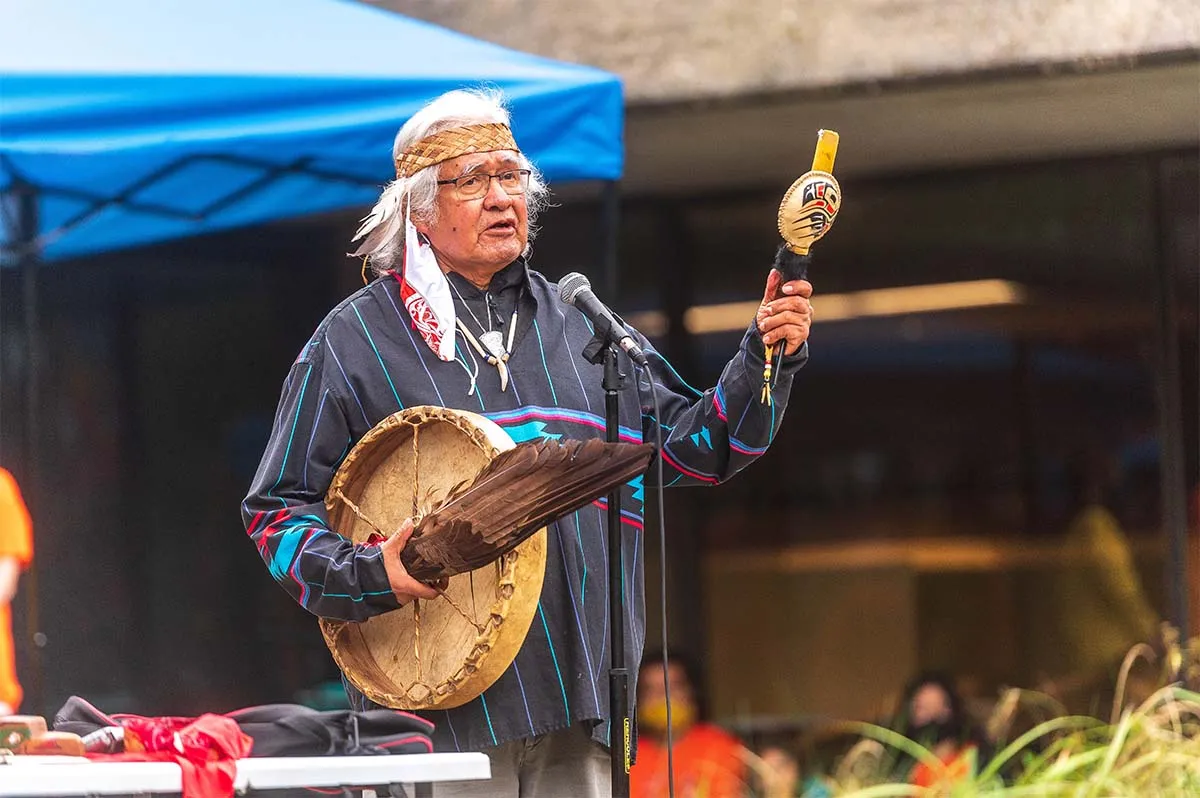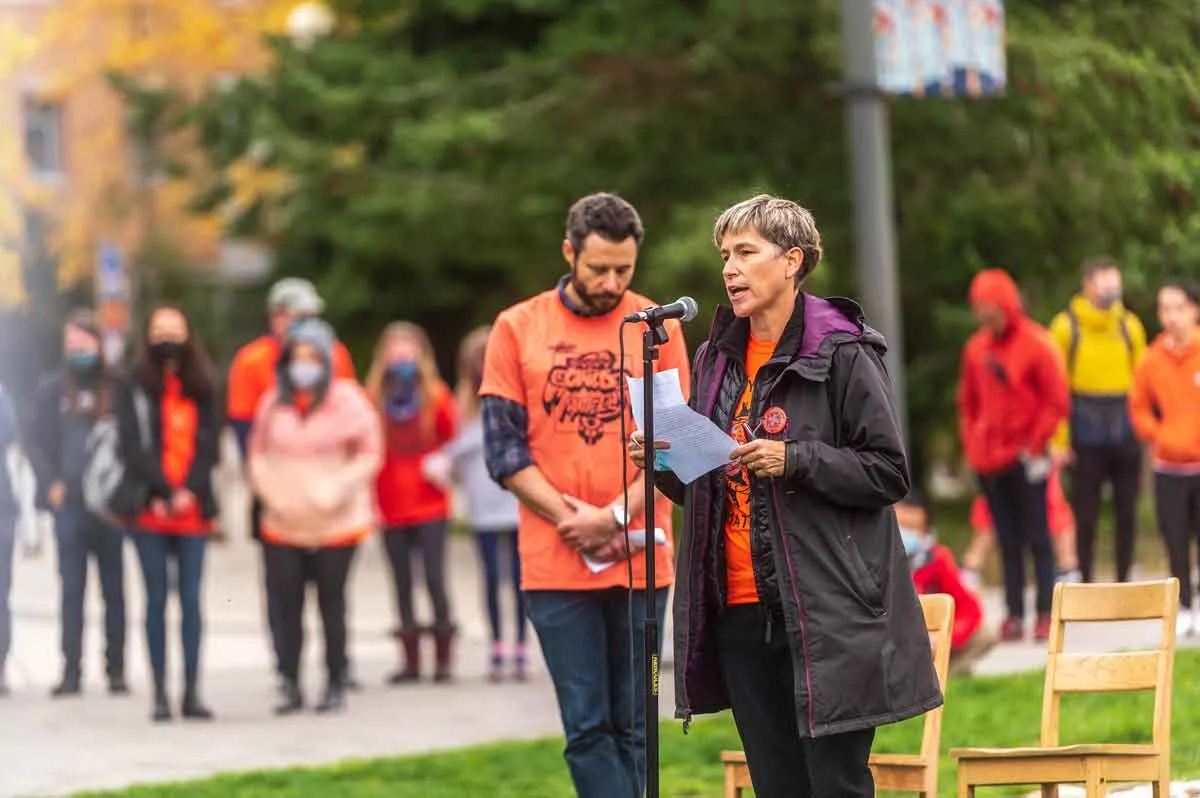National Day for Truth and Reconciliation recognized and honoured at UBC
- This event was held on September 30, 2021, at the University of British Columbia’s Vancouver campus, which is located on the traditional, ancestral and unceded territory of the Musqueam people.
- It was hosted by the Faculty of Applied Science, along with the Faculties of Land and Food Systems, Forestry and Science.
- Murray Sinclair, former Commissioner of the Truth and Reconciliation Commission, urged Canadians to spend the day honouring survivors and respecting the resilience of Indigenous people.
Edited: June 29, 2022
On September 30, 2021, an array of allies, most dressed in orange, came together on a cloudy day to show their solidarity with Indigenous peoples. They were attending the Intergenerational March for Orange Shirt Day at the University of British Columbia on the first-ever National Day for Truth and Reconciliation.
Despite the forecast having called for rain, the dark grey clouds held back for nearly three hours before unleashing a downpour — just after Elder Pauline "Fishwoman" Johnson delivered the final words of her speech.

Elder Pauline’s voice was full of emotion as she described the impact that the residential school system has had on herself and her family.
“I am proud of who I am, but I have to teach my little grandkids how to be proud. And I have to teach them […] not to be afraid to speak up, and not to be afraid of who they are. They have a right to have a voice, and I never had that.”
At one point, Elder Pauline perhaps felt that her voice was once again being silenced, this time due to technical issues with her microphone. But with help from faculty and staff, the sound was restored and she could be heard once again. Elder Pauline talked about hope and strength, her bravery in speaking her truth felt by all in attendance. Pauline’s speech was punctuated by the Northern Light song, which is meant to honour and remember nature.
Traditional and new music performances were shared throughout the course of the day, including during the opening remarks from Elder Seis’lom, of the Lil’wat Nation. The “Welcome song” signified the first sign of snow, and how it will purify the earth and water. The Soul Sisters performed both the Women’s Warrior Song and the Men’s Warrior Song. The songs are meant to commemorate the warrior-like nature of all genders, and are meant to be inclusive, while the “St'at'imc Grizzly Bear song” is intended to help pray for spring and to bless the families and everyone else.

There was a large turn-out for the event, with upwards of 2000 people, including children, present.
During his opening remarks, Elder Seis’lom shared many thoughts and words for the Indigenous children who perished at residential schools. He reiterated that they remain in the minds and hearts of Indigenous peoples, who have a rich history of holding each other up and moving forward, knowing that there is a better life ahead.

The day not only provided an opportunity to listen to the voices of Indigenous people and to hear first-hand accounts of the impact the residential school system has had on past and future generations. It was also an occasion to learn more about Indigenous culture and how it ties in with present-day teaching methods. For example, Elder Seis’lom spoke of the medicine wheel model and how this is now being used as a teaching tool at various universities across Canada.
Dr. Will Valley, associate dean of equity, diversity and inclusion in the Faculty of Land and Food Systems, and Dr. Sheryl Staub-French, associate dean of equity, diversity, inclusion and Indigeneity in the Faculty of Applied Science, were present to observe and speak on behalf of UBC.
Valley expressed that we should expect our education system to help us prepare for, acknowledge and work through our feelings of discomfort.
“We’re hearing about a cultural genocide on this land, and it lands in our bodies,” he said. “So I appreciate that you’re here and you’re willing to be here to be uncomfortable […] and to be uncomfortable together.”
Staub-French stressed the importance of education and how it can be used as a tool to help with the process of healing, saying: “Commemorating this day, advocating for the truth and connecting as a community is one small step towards learning and unlearning Canadian history.”

The participating Faculties would like to extend our gratitude to all participants who helped make the event possible. Thank you for joining us, for sharing, for listening to survivors and for taking time to educate yourself and support Indigenous peoples as we continue this journey of truth and reconciliation.
We acknowledge the work of Dana-Lyn Mackenzie, Senior Manager, EDI & Indigeneity at the Faculties of Applied Science and Land and Food Systems, and Danilo Caron, MASc student and Indigenous Engagement Coordinator, Engineering Student Services, for organizing this event.
Engaging with Indian Residential School histories and legacies can lead to emotional reactions and (unexpectedly) difficult thoughts and feelings. Sometimes these can surface hours, days, or weeks later. This is perfectly normal. If you find yourself feeling overwhelmed, it is important to respect your needs and to be kind to yourself. For resources, visit IRSHDC.


